A lovely poem comes in stanzas, rhymes, and lines, and this should be the case even in kindergarten poetry. Sometimes, it’s full of emotions. Other times, it’s just random. While poems for kindergartners cover a variety of topics, they are usually short, funny, and colorful—something that’s perfect for children. If you are looking for such type of literary piece, here are some short poems for kindergarten you can use.
Free and Printable Kindergarten Poetry Lines
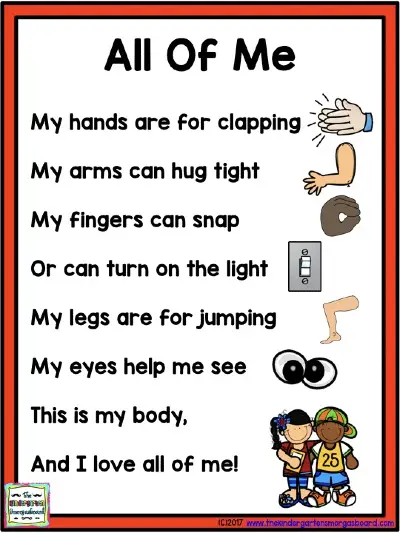
source: thekindergartensmorgasboard.com
As adults, we already know every part of our body and their respective functions. But our children don’t. This preschool poetry may help them with that! This printable poetry piece for kindergarten includes illustrations, enabling children to visualize and have a clear idea about the names of every part that made them whole. You can download this file for free, print it out, and post it in a classroom or your child’s room.
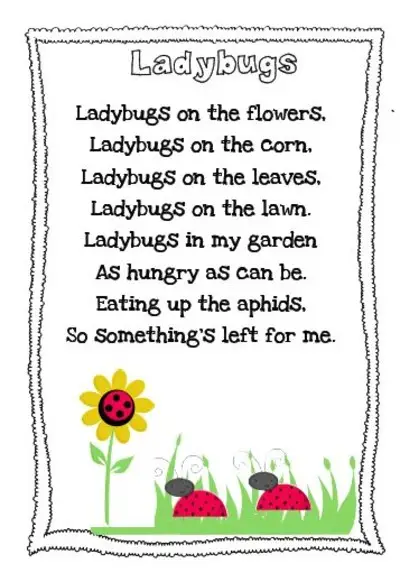
source: theverybusykindergarten.blogspot.com
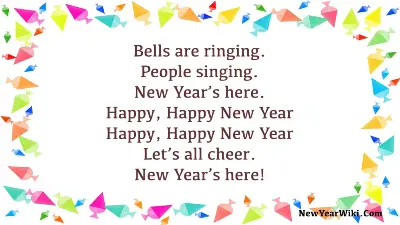
source: newyearwiki.com
There’s always a poem for every season and a song for every holiday. If you are a teacher and you’re planning to let your little students recite a poem before or after the New Year, then save this New Year poem for kids on your device. This file features vibrant colors, which best fits the liveliness of the New Year. Get your copy now!
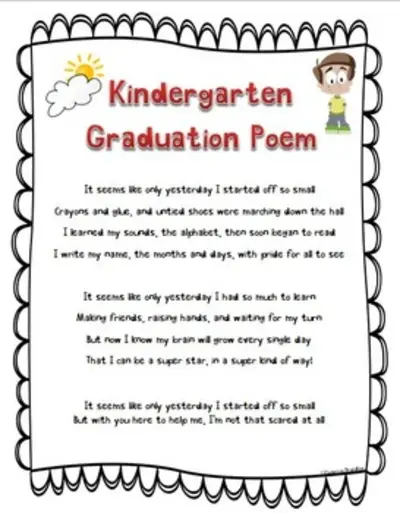
source: kindergarten.myify.net
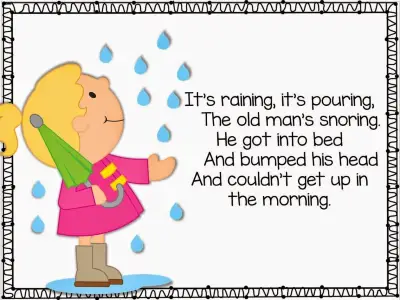
source: littlemindsatwork.org
Are you searching for examples of funny poems for kindergarten? This poem about rain and an old man who couldn’t get up in the morning may be the one you’re looking for. It’s short, simple, and at some point, hilarious. You can download this image in JPEG file format. It’s also complete with large texts for legibility and a cute illustration to add more creativity. Go ahead and click the download button now!
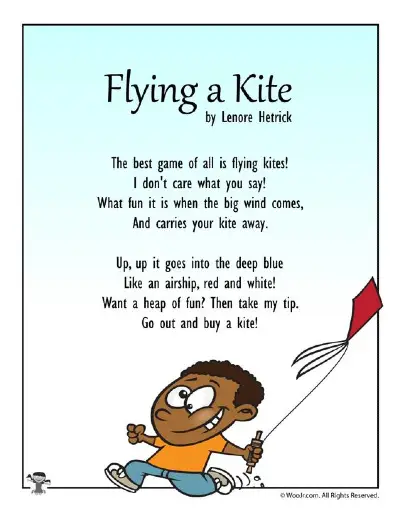
source: woojr.com
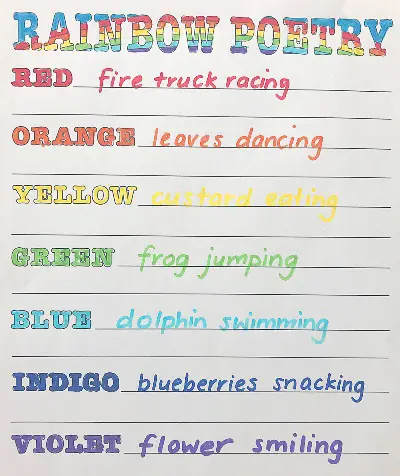
source: scholastic.com
“What color is this?” “Green!” “How about this?” “Red!”
You’ve probably heard that exchange between a child and someone older than them. It’s always fun teaching little kids about colors, especially when they can easily get the right answer. Although you can do that by pointing at random things and asking them what color is which, you can also try other methods like reading with them this rainbow poetry. With this in your hands, you can help your kids learn about the colors of the rainbow. Plus, it’s free! Secure your copy now!
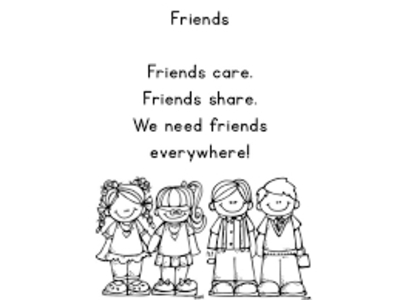
source: centralia.k12.mo.us
Writing Poems with a Kindergartener: A Guide
As we grow older, the poetry that we know of grows deeper, like our understanding of life. However, little children are no Shakespeare, who, according to shakespeare.org.uk, has written 154 sonnets, two long narrative poems, and other minor poems. While this legendary writer uses metaphors and metrical patterns in his pieces, we could not just push little kids to write something similar.
If you want your child or little sister/brother to learn to love this type of art, here are some tips to help them with it:
1. Start with the Topic for Kindergarten Poetry
Before writing anything—whether they are poems, stories, blogs, or essays—be definite about your subject. Consequently, the first step to poetry writing is to identify your topic. So, ask your little one the things that they like to mention in their poem. You can also ask about the hobby they like best or their favorite memory. And if they don’t have anything in mind, you can give them suggestions, just make sure they can relate to it.
2. Use Familiar Rhymes
Well, poems don’t have to rhyme. But implementing this writing style helps children appreciate poetry writing more. To children, a poem sounds interesting and fun when the last words of each line sound alike. Most importantly, finding rhyming words helps widen the vocabulary of a child. As they start writing, you can also give them a list of words that rhyme. Start with the three-letter words first, like hat, mat, bat, cat, fat, and so on. They can easily insert such words into their writing since they already have an idea of what these words mean.
3. Write with Them
After identifying the topic with your little one and giving them a list of rhyming words, don’t leave them on their own yet. Then, to guide them along the process of writing. When they are writing, advise them to use their senses to have a more imaginative piece. Say, for example, they are writing about their pet, tell them to describe how the animal looks like: the color of its fur or the cuteness of its face.
4. Teach Them about Line Breaks
In poetry writing, line breaks add more rhythm to the piece. As the name implies, it is the termination of a line for the readers to know when to pause. Thus, giving the piece more life and emotion. For this reason, it is important for the writer to direct the readers as to when they should or should not go on. Imagine reading a poem written in paragraph form. You can’t, right?
After helping your little one break down their writing into lines and stanzas, let them read it aloud. Then see if it sounds as nice when heard. Lastly, make some corrections or revise when necessary.



